From Leonardo da Vinci to Iron Man’s Tony Stark, the ultimate ambition of madcap inventors has always been the personal flying machine. Last year, filming in China, TV presenter Reggie Yates saw that ambition finally realised when a young tech entrepreneur he was interviewing for a documentary climbed on to his drone motorbike and calmly pootled off and up, 50m or so into the sky.
Viewers watching the feat will be astounded. But Yates, 36, adopts neither Palinesque awestruck wonderment nor Therouxvian outsider awkwardness. Instead, he turns to the inventor’s wife and asks her how working on the machine has affected their family. Not great, it turns out. They’ve had to sell their home to fund his research and she’s terrified about him having an accident. It’s an unusual conversation: matter-of-fact and personal, not the kind of thing you often see on TV.
Yates has two documentary series out this month. The three-part Reggie Yates in China, featuring the drone motorbike, sees him wrestling with the well-trodden contradictions of an authoritarian free-market superpower. Then there’s MTV’s Reggie Yates Meets World (“Always get your name in the title,” he tells me), which focuses on young people getting rich in unusual ways. But whether he’s hanging out with teen e-sports fanatics in the US or traversing the monoculture of China, he seems to manage a kind of everyman ease with his subjects, making them forget the crew and cameras, as if they’re just talking to a friend they haven’t seen in a while.
He creates the same atmosphere when we meet in a café near his home in southeast London. “Hello again!” he beams at our waiter, before reinforcing status as a regular by ordering the veggie breakfast less as if it was a meal and more an ongoing process of trial and error slowly working towards perfection. “No toast, extra halloumi, a couple more croquettes if anything, and eggs, scrambled, but cooked through, because yesterday they were a bit runny.”

He asks me five or so questions before I’m able to sneak my first in. I can’t tell if this is him unwilling to relinquish the role of interviewer or just his matey manner, but by the time our drinks arrive he has worked out that he almost attended the same co-ed secondary school as me, but ended up going elsewhere because his mum was worried he’d be distracted by the girls.
Yates has had decades to hone this patter. He first appeared on television aged eight, popping up in small roles in A Bit of Fry and Laurie sketches and the groundbreaking C4 sitcom Desmond’s. By the time he was a teenager he was hosting a ream of kids’ Saturday morning shows as well as appearing in CBBC dramas. Often working alongside Fearne Cotton, he quickly made the transition into grown-up broadcasting, hosting all three of the BBC’s tentpole pop shows: The Voice, the official chart on Radio 1, and Top of the Pops.
It’s not uncommon for someone with that level of adolescent success to become enamoured of the trappings of fame and to start making reckless choices. But Yates is almost never papped at showbiz parties and claims he has never drunk alcohol or tried any drug. Why is he so sensible? “At 18, I’d already been on telly for a decade. I had a mortgage and three year-long contracts for Radio 1, Top of the Pops and CBBC, but I’d also had a decade of people recognising me in the street, a decade of my mum telling me, ‘Don’t mess up or it all goes away.’”
He says he could feel the difference between himself and other people his age when he was interviewing pop bands on CBBC. “They had ‘rinse me’ written on their foreheads and ‘take everything you can’ written across their T-shirts. Even at 18, I could see they were ripe for being taken advantage of because it was all so new and exciting; they had too much too soon.”
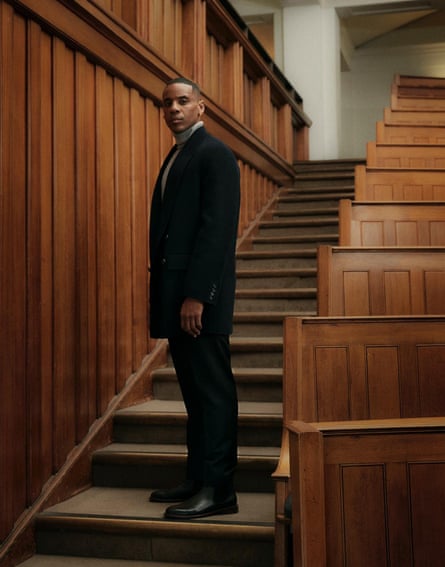
Instead of becoming an It Boy, Yates started to become restless with entertainment TV and began making documentaries. Initially, he wasn’t sure whether he knew enough about current affairs to make factual TV and took some convincing from the then-controller of BBC One, Danny Cohen, but after a series exploring masculinity, homophobia, crime and cults, he now feels at home in the genre. “It’s never an interview, it’s a conversation, researched to a point, but I can still be surprised in the moment. I feel confident in saying that if I sat down with George Clooney, I could get him to say something he’d never said before.”
It wasn’t always that way. “Part of the reason I left Radio 1 is that I would be sat down with pop stars and I’m asking them questions that their label and my producer want me to ask. I’d have One Direction sat in front of me and not be able to ask how much they’re struggling, just about their new song that they didn’t write.” Yates’s own films are informative and, he says, far from formulaic. “Because of who I am – a young black man from north London, from a working-class background – the way I tackle a subject matter is going to be infinitely different from, say, Michael Palin.”
Fronting primetime documentary strands on the BBC is the holy grail for most serious broadcasters, Palin included. But when you list them – Theroux, Palin, Simon Reeve, Stacey Dooley, Brian Cox, Michael Portillo, Andrew Marr – the lack of diversity is obvious. You’d expect him to say that needs to change, but the absence of people who look like him hosting documentaries punctures him in an especially visceral way. “I realised how alone I was and how awkward that made me feel. Every single time I leave the house, someone stops me and says: ‘You’ve found your purpose,’ or, ‘You’re doing this for us,’ and ‘Thank you for speaking for me,’ or, ‘You’re like one of my sons.’ You realise you’ve got a platform you’ve got to do something with.” Is he saying that the way people talk to him on the street is different to, say, the way they talk to Fearne Cotton? “Those are your words not mine, but I know I’m in a very different place from my peers. Realistically, I’m peerless.”
He does feel a kinship with the rapper Kano, with actor and former So Solid Crew member Ashley Walters and with Ashley Thomas, also known as Bashy, who moved from music to acting. “We’re having conversations about tax, about health, about looking after ourselves, the pressures of being ‘the one that made it’, even though none of us feel like we’ve made it. But their experiences are in music and acting. I don’t have anyone to talk to about going from entertainment to documentary to directing.”
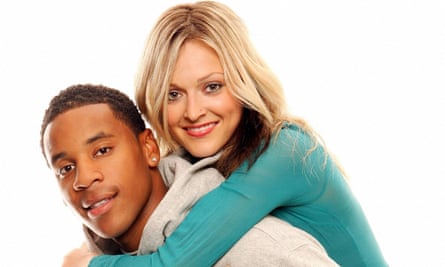
His answer to this problem has been to take on five mentees, who he’s helping through the hurdles of the TV industry. Two of them, the Asian Network host Mim Shaikh and the stylist and filmmaker Basma Khalifa, have had their debut documentaries shown on BBC One. Both, on Yates’s advice, feature their name in the title. He says he hopes they will surpass his success and “sooner rather than later”.
Yates is so deeply focused on being a model to others – he has written his autobiography about his journey and gives advice and talks on YouTube – that he might seem impervious to scandal, but he has more than once been accused of serious missteps.
Three years ago he appeared on the HalfCast podcast with Chuckie and Poet, two stalwarts of the grime scene. He was talking about how exciting it was that there are not just more young black artists, but also that they’re “independent, they’re not managed by some random fat Jewish guy from northwest London, they’re managed by their brethren”.
After being accused by many of antisemitism, he apologised for the remarks and quit that year’s edition of Top of the Pops (he hasn’t returned since). “I was beating myself up more than anybody else, because I was like: ‘I’m so stupid to say something like that,’ and in the moment not correct myself and not realise the people that I care about I will offend,” he says of that time. “The greatest lesson I’ve learned from it is that context is irrelevant when you hurt somebody. I felt justified in saying what I was saying, because of the context, because of the conversation, but the words I used offended a lot of people and some people I care about, and those words were wrong… It was the first time I was on the other side, because in the past I’ve been offended by people saying things to me that have targeted me because of my race. I felt like the people who’ve been called out by me.”
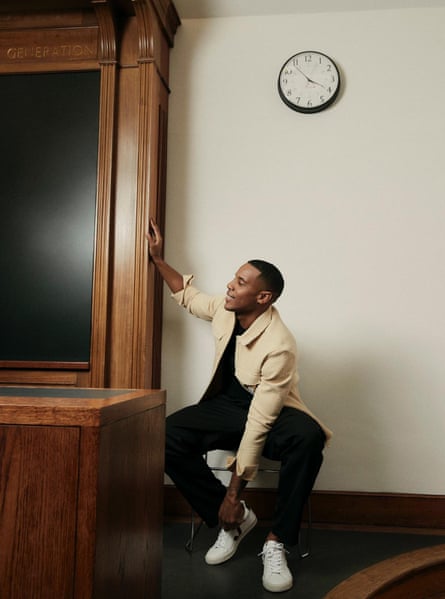
I say that while it’s true we should all pay attention to context, what seemed offensive about the comment to me is that there really aren’t many Jews in British urban music: Wiley’s manager is Jewish (but certainly not fat), and I suppose the entertainment impresario Jonathan Shalit managed N-Dubz for a bit, but he is much better known for working with TV personalities such as Simon Cowell and Lorraine Kelly. It would still have been a bad thing to say if there were a lot of Jews working in that genre, but because there aren’t; it felt as though it was plugged into an older, more sinister stereotype.
“Yeah, John [Wiley’s manager] is a mate of mine. He spoke about it in a Jewish newspaper, he stuck up for me. He said: ‘He’s apologised to me personally,’ which I had. Look, I’m not going to run down the list of people in my phonebook who are from that faith, but I had to make a lot of calls, because I personally wanted to apologise to people. And I think the minute you’re smart enough to recognise that, you’re smart enough to know you’ll never make that mistake again.”
A few years later, Yates was filming in Northern Ireland with Saoradh, a far-left republican group with ties to the New IRA, for his MTV series. Just hours after the interview, the group was involved in riots in which the journalist Lyra McKee was shot and killed. Some have claimed Saoradh amped up their usual Easter shenanigans to make a bigger splash for the TV crew. One community organiser told the Guardian, “They staged the whole thing for him. It was all staged, all choreographed.”
Yates is more reticent on this issue, citing an ongoing police investigation and McKee’s grieving family, but does say that he “absolutely” feels comfortable with his actions and those of the crew, and points to numerous statements from the Police Service of Northern Ireland that have said there is “no evidence” to suggest their presence affected events on the ground.

Neither episode, nor the moment in 2017 when the BBC apologised for “misleading” scenes in a documentary Yates presented about an Aboriginal community in regional Australia, has put any dampers on Yates’s career. He is currently working on three screenplays, including a feature film. Yesterday, he began his day on a panel about diversity with Esther Rantzen in London, got a car to Oxfordshire to interview Kano, then took a helicopter back to London for a workshop about storytelling organised by Apple. This morning he went to his barber at 6am – they opened especially for him – followed by the gym, the motorbike shop, a meeting with his architect, another with his “A/V guy” and now he’s eating for the first time today. Our lunch will be squeezed in before his new car gets delivered, then he’s set a few hours aside to work on his screenplay, before DJing this evening.
Meanwhile, he’s designed most of the furniture in his home and most of the jewellery he’s wearing. He goes to the cinema twice a week, is up to speed on the latest music releases and works out almost every morning.
Does he have extra hours in the day? “Ha, no; if you care enough, you make the time for it.” It helps that he only sleeps five hours a night during the week and goes everywhere by motorbike. “You’re always going to get there 50% faster.”
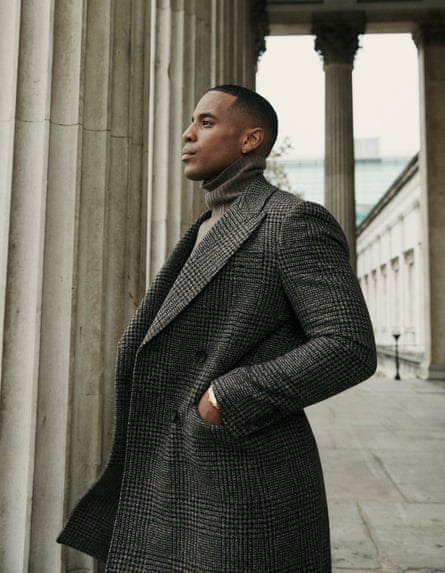
One might think that his bulging iCal means he would disappear the second I turn my Dictaphone off, but he stays for ages, talking more about the antisemitism issue, about other celebrities who’ve doubled-down, rather than immediately apologising following a racist comment, and have found it career-ending. Even when he’s talking about his single life – things ended with his fiancée, the model Tia Ward, a few years ago – he’s desperately even-handed. “The only way you can have a sustained relationship with a romantic partner is that they can’t be your everything.”
I wonder if he is always so philosophical about everything. “I used to be very judgmental… not in a bitchy way, but in a self-righteous way. Therapy helps you assess your behaviour. It’s so easy to become a sycophant or an egomaniac or a psychopath. Jesus Christ, I’ve met some psychopaths in this industry. They’re everywhere. To keep that in check I ask myself the right questions and as a result I think I’m balanced. I know I am balanced. That’s something I’m happy to brag about.”
Reggie Yates in China will air this autumn on BBC Two
Fashion editor Helen Seamons; grooming by Hannah Cutts; lighting by Michael Furlonger; digital by Rob Self; lighting assistant Alex Williams; fashion assistant Peter Bevan; shot on location at UCL (ucl.ac.uk)
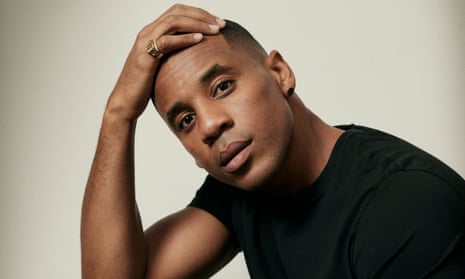
Comments (…)
Sign in or create your Guardian account to join the discussion